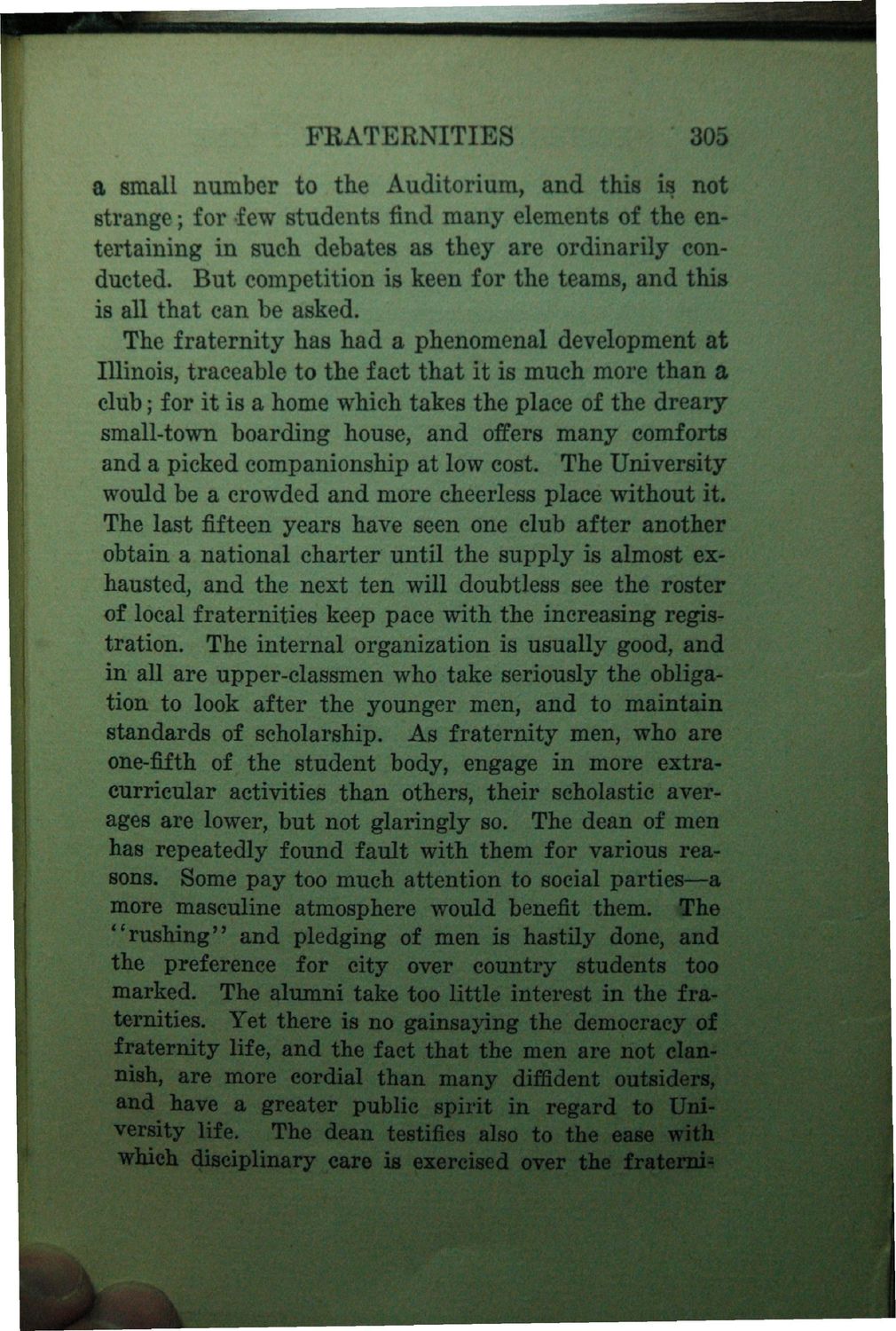| |
| |
Caption: Book - History of the University (Nevins)
This is a reduced-resolution page image for fast online browsing.

EXTRACTED TEXT FROM PAGE:
FRATEENITIES 305 a small number to the Auditorium, and this is not strange; for few students find many elements of the entertaining in such debates as they are ordinarily conducted. But competition is keen for the teams, and this is all that can be asked. The fraternity has had a phenomenal development at Illinois, traceable to the fact that it is much more than a club; for it is a home which takes the place of the dreary small-town boarding house, and offers many comforts and a picked companionship at low cost. The University would be a crowded and more cheerless place without it. The last fifteen years have seen one club after another obtain a national charter until the supply is almost exhausted, and the next ten will doubtless see the roster of local fraternities keep pace with the increasing registration. The internal organization is usually good, and in all are upper-classmen who take seriously the obligation to look after the younger men, and to maintain standards of scholarship. As fraternity men, who are one-fifth of the student body, engage in more extracurricular activities than others, their scholastic averages are lower, but not glaringly so. The dean of men has repeatedly found fault with them for various reasons. Some pay too much attention to social parties—a more masculine atmosphere would benefit them. The "rushing" and pledging of men is hastily done, and the preference for city over country students too marked. The alumni take too little interest in the fraternities. Yet there is no gainsaying the democracy of fraternity life, and the fact that the men are hot clannish, are more cordial than many diffident outsiders, and have a greater public spirit in regard to :^S^4 versity life. The dean testifies also to the ease with which disciplinary care is exercised over the fraterni*
| |